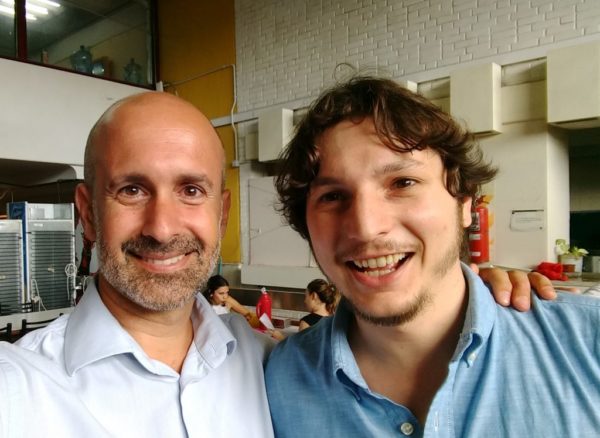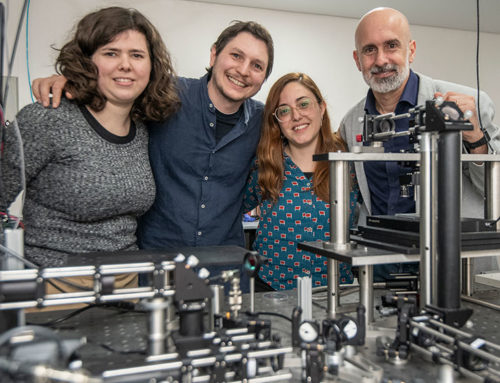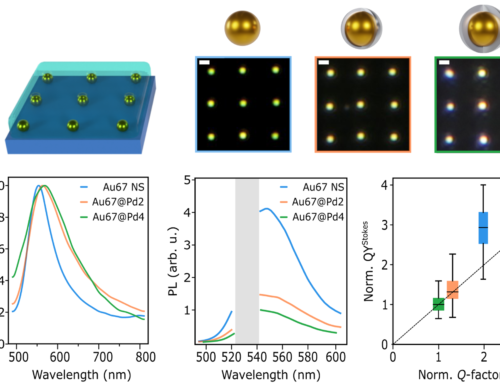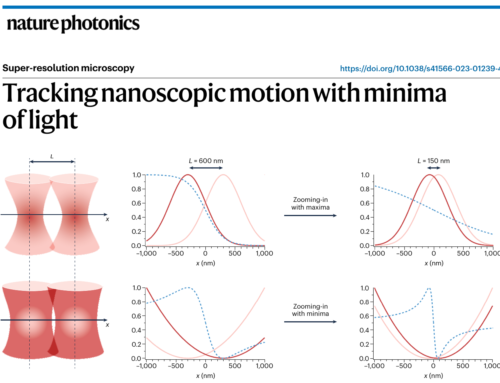Today, Julian Gargiulo defended his doctoral thesis “Optical printing of metallic nanoparticles” at the Physics Department of the Faculty of Exact and Natural Sciences, University of Buenos Aires, obtaining the highest honors.
Colloidal chemistry provides an enormous variety of nanoparticles, with different shapes, sizes and material composition. These nanomaterials have unique physical and (bio)chemical properties that are not accessible in bulk materials, but are suspended in a liquid phase. In order to make use of those properties in devices, it is necessary to bring them from the liquid phase to a solid substrate. Ideally, one would like to do that with full flexibility to combine different nanoparticles in arbitrary geometrical patterns. This task is one of the current open challenges of nanotechnology, which Julián tackled in his doctoral thesis using optical forces.

Optical printing makes use of colloidal interactions and optical forces to bring nanoparticles, one at a time, from the liquid suspension to specific positions of a solid substrate. In his thesis, Julián Gargiulo constructed a fully automated optical printing machine, with which he made systematic investigations of optical printing of gold and silver nanoparticles, focused on the printing precision and resolution. He identified all relevant physical phenomena involved and provides a detailed description of the optical printing mechanism. His work sets a solid base for future work towards the ultimate goal of making nano- and microdevices based on colloidal nanoparticles.

Congratulations Juli!



